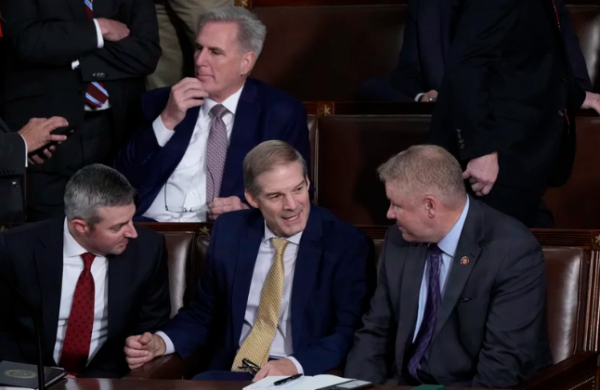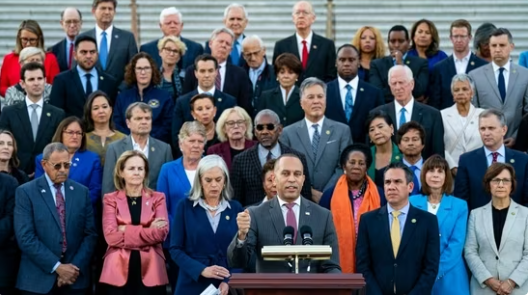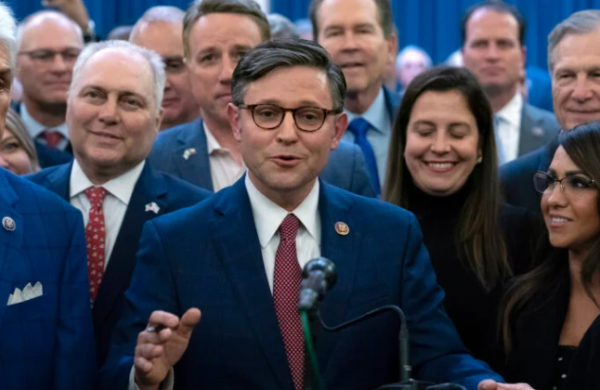Following the successful motion to vacate the speakership of Kevin McCarthy of California on October 3, 2023, the members of the U.S. House of Representatives began holding an intra-term election for speaker of the House on October 17. McCarthy had previously been elected on January 7, 2023, after fifteen rounds of voting in the January speakership election at the start of the 118th Congress. Patrick McHenry (NC-10), a Republican, is serving as speaker pro tempore until a new or different speaker pro tempore is elected.

House Democrats unanimously nominated House Minority Leader Hakeem Jeffries (NY-8) on October 10. House Majority Leader Steve Scalise (LA-1) was initially nominated by House Republicans on October 11, but he withdrew from the race the next day. Controversial Congressman Jim Jordan (OH-4) was nominated on a second internal Republican conference vote on October 13.
In the first round of voting, Jeffries received 212 votes and Jordan received 200 votes. Despite not being formally nominated, Scalise received seven votes, Kevin McCarthy received six votes, former Congressman Lee Zeldin (NY-1) received three votes, and four others each received one vote. As no person received the majority of votes cast, a second round of voting was necessary. In the second round, Jeffries again received 212 votes, Jordan received 199 votes, and numerous other Republicans received 22 votes. On October 24, the conference nominated Majority Whip Tom Emmer (MN-6), who withdrew shortly after former President Donald Trump voiced his opposition to Emmer’s candidacy. That night, Congressman Mike Johnson (LA-4) was selected in Emmer’s place, having previously come in second place against him.
On October 24, the conference nominated Majority Whip Tom Emmer (MN-6), who withdrew shortly after former President Donald Trump voiced his opposition to Emmer’s candidacy. That night, Congressman Mike Johnson (LA-4) was selected in Emmer’s place, having previously come in second place against him.
In the fourth round, held on October 25, Johnson received 220 votes and was elected speaker, while Jeffries came in second place with 209 votes. Unlike previous ballots, no Republicans defected, and every representative present voted for their party’s nominee for Speaker.















